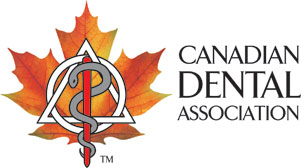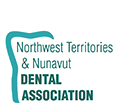The Canadian Dental Association (CDA) has compiled important information on a range of topics to facilitate Internationally Trained Dentists (ITDs) adapting to the Canadian practice environment. Below are key topics to help you on your journey.
Who We Are
CDA is Canada’s national voice for dentistry, dedicated to the promotion of optimal oral health and to the advancement and leadership of a unified dental profession. We represent over 21,000 practising dentists across the country.
Knowledge Sharing
We capture, organize, and disseminate information about oral health and the dental profession through various channels:
- CDA website: Our home to everything CDA and many useful resources and information
- JCDA: Journal of the Canadian Dental Association
- CDA Essentials: Our print publication
- CDA Oasis: Our digital hub
- Twitter, Facebook, Instagram and LinkedIn: Our social media channels
Advocacy
CDA advocates for policies and regulations that advance oral healthcare and the dentistry profession on the federal level. Our primary advocacy tools include government relations, media relations, and public education.
Practice Support Services
CDA supports dentists who are members of the provincial and territorial dental associations with a range of services and programs that support dentists in their everyday practice.
What CDA Does Not Do
As a voluntary professional association, CDA is not involved in the regulation of dentists and of their practice. Dentists are regulated at the provincial and territorial level by independent organizations mandated by their provincial or territorial government. All inquiries related to the regulation of dentists should be directed to these bodies, listed here.
What Dental Teams Look Like in Canada
In Canada oral health care is delivered by providers that have a range of occupational backgrounds. Some of them are part of the team that takes care of patients in dental offices. Each member plays a unique role in ensuring that the patient receives the most comprehensive and complete oral health care experience. Below is a general description of the occupations of different dental team members. Please note that the roles will differ by province/territory.
Dental Assistant
This is the team member who prepares patients for treatment, sterilizes instruments, assists the dentist, and helps keep patients’ mouths dry during procedures. In some jurisdictions, a dental assistant may also take X-rays, make dental impressions, and polish and apply fluoride to teeth.
Dental Hygienist
Dental Hygienists are registered and trained to clean teeth and provide hygiene instructions to patients. They can also take X-rays and dental impressions, as well as cleaning, polishing, and applying fluoride to teeth. They can also perform hygiene assessments in some jurisdictions.
Dental Technologists/Technicians
Dental technologists/technicians fabricate various appliances such as orthodontic appliances, full dentures, partial dentures, crowns and bridges. They can also produce other items such as implant-related restorations, splints, and mouthguards.
Dental Therapist
In some jurisdictions, dental therapists work under the supervision of dentists to provide basic restorative treatments and simple extraction.
Receptionists and Business Staff
Receptionists maintain the dental team's schedules and allow the office to run smoothly. The receptionist is usually the first point of contact with patients and will provide general information about appointments and billing.
Helpful Links and Resources
Canadian Dental Association: Your Dental Health Care Team Fact Sheet
Dental Career Options
There are many different career opportunities in the Canadian dental industry, which is why we created a website to layout the full range of career opportunities. The Dental Career Options website outlines each different area with definitions, pros and cons, questions and answers, and links to other helpful resources.
Other Helpful Resources
Information is power when it comes getting set up for a successful career in dentistry in Canada. Here you will find helpful resources on settlement, integration, language and more.
Learn about how to get certified to practice dentistry in Canada
The process of becoming a dentist in Canada - National Dental Examining Board of Canada
Get Help Learning Canada’s Two Official Languages
Language classes funded by the Government of Canada - Government Of Canada
Resources for Newcomers to Canada
Find free newcomer services near you - Government of Canada
Learn More About Living in Canada
Living In Canada Tool - Government of Canada
Access the YMCA Newcomer Information Centre
Newcomers in Canada - YMCA Canada











